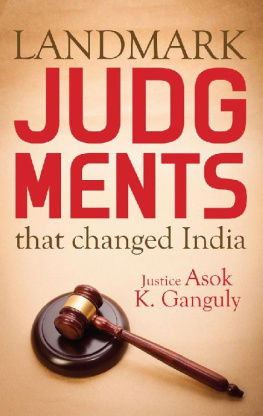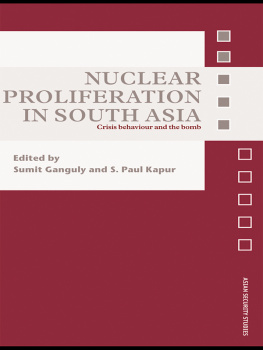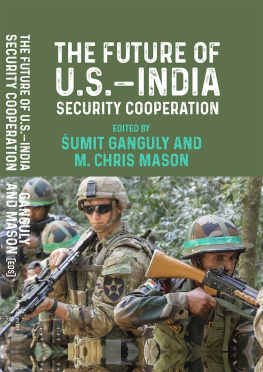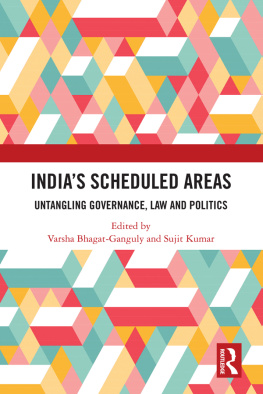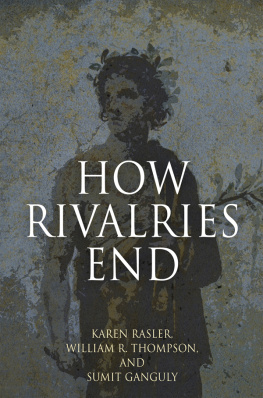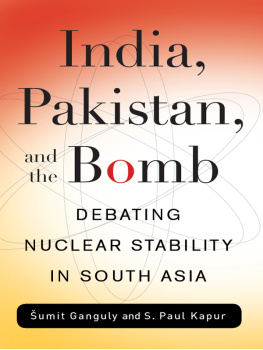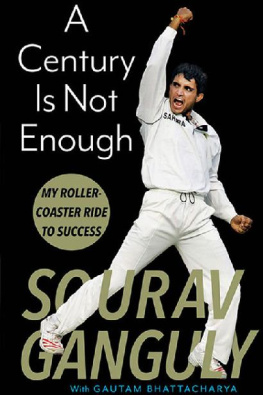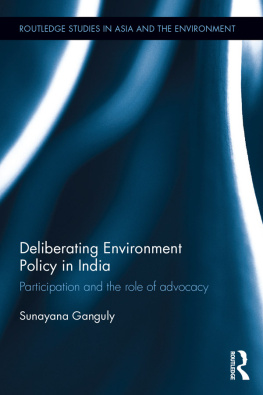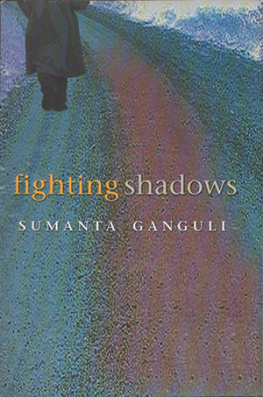Justice Asok Kumar Ganguly [Ganguly - Landmark Judgments That Changed India
Here you can read online Justice Asok Kumar Ganguly [Ganguly - Landmark Judgments That Changed India full text of the book (entire story) in english for free. Download pdf and epub, get meaning, cover and reviews about this ebook. year: 2015, publisher: Rupa Publications, genre: Romance novel. Description of the work, (preface) as well as reviews are available. Best literature library LitArk.com created for fans of good reading and offers a wide selection of genres:
Romance novel
Science fiction
Adventure
Detective
Science
History
Home and family
Prose
Art
Politics
Computer
Non-fiction
Religion
Business
Children
Humor
Choose a favorite category and find really read worthwhile books. Enjoy immersion in the world of imagination, feel the emotions of the characters or learn something new for yourself, make an fascinating discovery.
- Book:Landmark Judgments That Changed India
- Author:
- Publisher:Rupa Publications
- Genre:
- Year:2015
- Rating:3 / 5
- Favourites:Add to favourites
- Your mark:
- 60
- 1
- 2
- 3
- 4
- 5
Landmark Judgments That Changed India: summary, description and annotation
We offer to read an annotation, description, summary or preface (depends on what the author of the book "Landmark Judgments That Changed India" wrote himself). If you haven't found the necessary information about the book — write in the comments, we will try to find it.
Justice Asok Kumar Ganguly [Ganguly: author's other books
Who wrote Landmark Judgments That Changed India? Find out the surname, the name of the author of the book and a list of all author's works by series.
Landmark Judgments That Changed India — read online for free the complete book (whole text) full work
Below is the text of the book, divided by pages. System saving the place of the last page read, allows you to conveniently read the book "Landmark Judgments That Changed India" online for free, without having to search again every time where you left off. Put a bookmark, and you can go to the page where you finished reading at any time.
Font size:
Interval:
Bookmark:


Published by
Rupa Publications India Pvt. Ltd 2015
7/16, Ansari Road, Daryaganj
New Delhi 110002
Copyright Asok Kumar Ganguly 2015
The views and opinions expressed in this book are the authors own and the facts are as reported by him which have been verified to the extent possible, and the publishers are not in any way liable for the same.
While every effort has been made to trace copyright holders, this has not been possible in all cases; any omissions brought to our attention will be remedied in future editions.
All rights reserved.
No part of this publication may be reproduced, transmitted, or stored in a retrieval system, in any form or by any means, electronic, mechanical, photocopying, recording or otherwise, without the prior permission of the publisher.
ISBN: 978-81-291-3508-7
First impression 2015
10 9 8 7 6 5 4 3 2 1
The moral right of the author has been asserted.
This book is sold subject to the condition that it shall not, by way of trade or otherwise, be lent, resold, hired out, or otherwise circulated, without the publishers prior consent, in any form of binding or cover other than that in which it is published.
To my parents
CONTENTS
PREFACE
A Just Social Order
When writing about the Constitution, one has to take on the duty of familiarizing readers with what it is all about. It is true that these days the noise about the Constitution and Constitution courts is far more than what it used to be, say, fifteen years ago. Even then, the concept of a Constitution is shrouded in mystery for most people. To dispel this, it is worthwhile to start with a very acceptable and workable definition of a Constitution by A. King: [A Constitution is] The set of the most important rules and common understandings in any given country that regulate[s] the relations among that countrys governing institutions and also the relationship between those governing institutions and the people of that country.
People of the country obviously means the common people, who are always high on the agenda for any Constitution, at least on paper. Our Indian Constitution, and the oldest written Constitution of the world, the American Constitution, start with the famous expression We the people. Thus, people occupy centre stage in the constitutional scheme of any modern democracy. Therefore, the Constitution should not be something alien to the people; rather, they are the most important dramatis personae in the arena of constitutional governance. Our Constitution is, therefore, for the people and of the people, even though it may not strictly be by the people.
As soon as we talk of people, we have to think of their rights. Rights are the products of historical experiences of the people themselves and they have been earned through struggle, strife and sacrifice.
In India, the demand for a written Constitution was made more than a century and two decades ago, in 1895 by Bal Gangadhar Tilak in his Constitution of India Bill, 1895. About three decades later, it was reiterated by Sir Tej Bahadur Sapru. As leaders in our freedom struggle, both felt the pulse of the masses and in their demand for constitutional governance, they were actually voicing a popular cause.
Netaji Subhas Chandra Bose, who was the first amongst our national leaders to demand swaraj (or self-rule), in his Haripura Presidential address delivered in February 1938 in the fifty-first session of the Indian National Congress, clarified the Congress policy on fundamental rights. Even though Bose was not a member of the Constituent Assembly, the policy formulated by him as Congress president bears striking resemblance with the chapter on fundamental rights presently in our Constitution.
Ultimately, Boses ideas were shaped by Pandit Jawaharlal Nehru, Dr Bhimrao Ramji Ambedkar and various other luminaries, who were highly inspired by and fought for these noble ideas, which form the core of our national struggle for freedom. That is why, in our Constitution, one of the fundamental duties of our citizens is to cherish and follow the noble ideas which inspired our national struggle for freedom. Our fundamental rights for both citizens and persons can be best appreciated if they are read conjointly with the fundamental duties mentioned in Article 51A of the Constitution. Therefore, apart from it being the product of a national upsurge and struggle, the very framing of the Constitution is a revolution in itself. It is invariably directed against the authority of the state, be it a monarchy or a colonial power or a democratically elected government.
The Constitution seeks to protect the basic rights of the people and the spirit of human liberty against encroachment by the state. Hence one discerns some conflicts between the rule of law on the one handwhich very often matures into due process of law in view of judicial review provided under the Constitutionand the authority of state-building on the other. This tension of state-building often threatens the concept of individual liberty and freedom in view of the authoritarianism of the rule of law. It is here that the judiciary, thanks to its independence from state control, strikes the proper balance between the contradicting trends. That is why independence of the judiciary is an inalienable attribute in every Constitution, so that the Constitution may have both authoritative and legitimate ends for the welfare of the people and provide for them opportunities to enjoy a quality of life which is conducive to the development of the faculties of even the humblest of citizens.
In this context, the balance of rights between private persons and public bodies must be upheld. Both are subject to rule of law. A private person may do anything which is not prohibited by law. In the absence of a legal bar, his actions need no justification from the law. For public bodies the position is not the same. This has been explained with remarkable lucidity below:
A public body has no heritage of legal rights which it enjoys for its own sake; at every turn, all of its dealings constitute the fulfillments of duties which it owes to others; indeed, it exits for no other purpose. I would say that a public body enjoys no rights properly so called, it may in various contexts be entitled to insist that this or that procedure be followed, whether by a person affected by its decision or by a superior body having power over it; it may come to court as a judicial review applicant to complain of the decision of some other public authority; it may maintain
This clear statement admirably sums up the concept of rule of law in all democratic countries and is very relevant in the Indian context. It meshes with the vision in the Preamble of our Constitution, which places the dignity of the individual on the same footing as the unity and integrity of the nation, thus rejecting the concept of a totalitarian state.
So it is most crucial in such a state to usher in a just social order which is fundamental in the governance of the country.
A just social order cannot exist without inclusive and sustainable economic growth. In the last twenty years, in terms of the growth of gross domestic product (GDP)which was about 6 per cent in the 1990s and rose to 7 per cent in the first decade of this centuryit has to be admitted that India is possibly the worlds second fastest growing economy after China. However, the difficulty lies elsewhere. It is accepted by all impartial bodies that the societal reach of economic progress in India is remarkably limited. The distribution of income has not been fair and there is no rise in the real wage of workers in view of spiralling inflation. All essential services like health, schooling, sanitation, drinking water, etc. have become scarce, costlier and beyond the reach of the common man. In these matters India is possibly the second worst among the South Asian countries, being only ahead of strife-ridden Pakistan. Though India has progressed further on per capita income than countries such as Bangladesh, Sri Lanka, Nepal and Bhutan, so far as social indicators are concerned, it is found deficient. This sordid situation has come about primarily due to erroneous prioritization of economic policy. Admittedly, the neo-liberalist economic policy of the government has been at variance with the constitutional goal of equal society, which aims at preventing the concentration of wealth in a few hands.
Next pageFont size:
Interval:
Bookmark:
Similar books «Landmark Judgments That Changed India»
Look at similar books to Landmark Judgments That Changed India. We have selected literature similar in name and meaning in the hope of providing readers with more options to find new, interesting, not yet read works.
Discussion, reviews of the book Landmark Judgments That Changed India and just readers' own opinions. Leave your comments, write what you think about the work, its meaning or the main characters. Specify what exactly you liked and what you didn't like, and why you think so.

